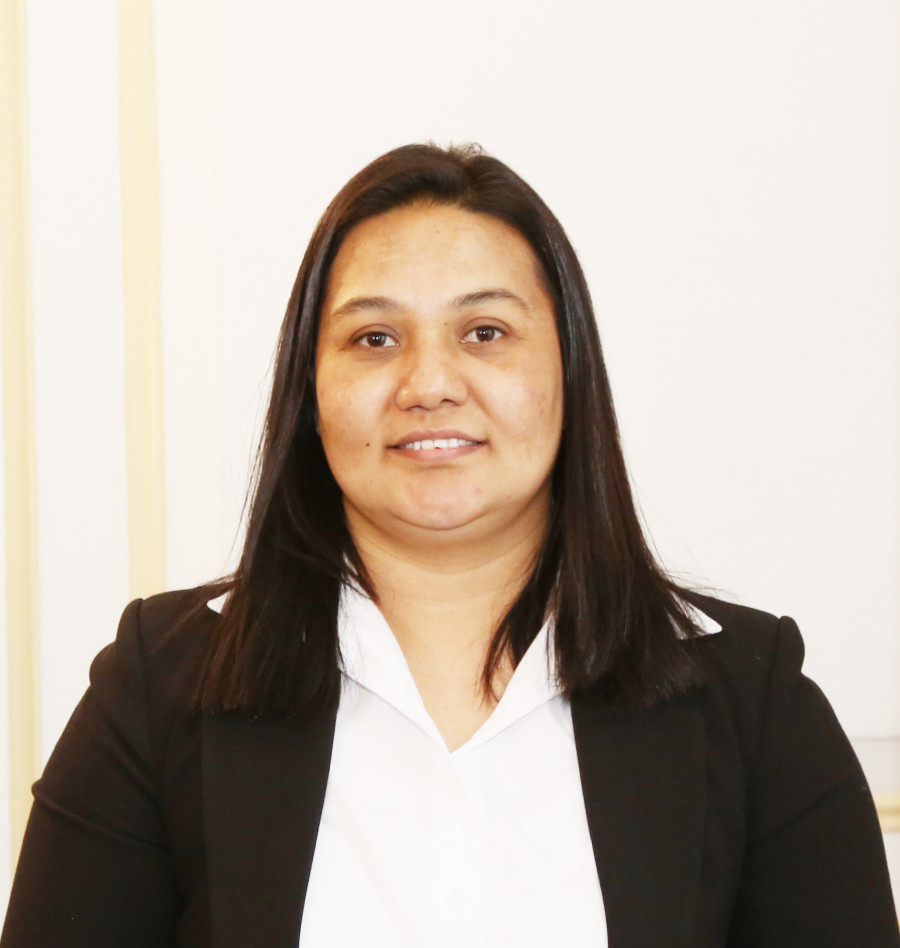Culture & Lifestyle
Lessons in chemistry
Biochemist Sushila Maharjan talks about her research in genetic engineering, antibiotics and regenerative medicine.
Manushree Mahat
Sushila Maharjan was naturally drawn to chemistry among all the sciences. Her enthusiasm for the subject shines through as she expresses her belief that chemistry is the core of all life. There’s a melodious lilt to her voice as she begins telling me about her research, jokingly asking, “How much time do we have? I can talk about chemistry endlessly.”
Maharjan’s fondness for chemistry was evident from her middle school years. She distinctly recalls enjoying learning about atomic particles more than anything else. This curiosity of hers developed a life of its own, leading her to pursue a bachelor’s in organic chemistry and a master’s in chemistry at Tribhuvan University’s Central Department of Chemistry.
Science and engineering have long been considered reputable fields, offering societal respect and stability. Maharjan’s father, quite in lieu with his daughter’s passions, envisioned her future as a doctor. “My family has been a constant support for me throughout the years,” she says.
As Maharjan immersed herself in the theoretical aspects of chemistry, she noticed a glaring gap in her education—the absence of practical experiences. She craved interactive lab work, believing that the intricate nuances of chemistry could only be truly grasped through hands-on exploration, an aspect she wished her education prioritised.
When the opportunity to present her thesis arose (back then, only 50 students could apply for thesis writing), she began her research, completed her thesis and applied for PhD in Biochemistry at Sun Moon University in South Korea.
Maharjan’s interest in natural products played a big role in her genetic engineering-based research in South Korea. Her research centred around antibiotics—specifically in isolating antibiotics from streptomyces for their usage in drugs—and she was actively involved in it for several years. For her contribution to biotechnology, she was awarded the Elsevier Foundation Award by the Organisation for Women in Science for the Developing World (OWSD) in 2016.
“Acknowledgements like these can go a long way in motivating researchers. However, it is funding and grants that truly impact research in Nepal,” shares Maharjan.
Right now, her primary goal is to tailor research according to Nepal’s sociobiological and demographic needs. She co-founded the Nepal Research Institute for Bioscience and Biotechnology in 2011, applying her expertise from her work in South Korea. Her research in Nepal focuses on studying streptomycetes, a type of bacteria, at varying altitudes. “Despite efforts, conclusive results have been elusive due to the lack of funding,” she says, adding, the government’s insufficient support has posed challenges for researchers in Nepal.
Returning to South Korea, Maharjan applied for a fellowship with the American Fund for Alternatives to Animal Research (AFAAR). For the past six years, she has dedicated 12-16 hours daily to her work. Currently, she is an instructor of medicine at Harvard Medical School, where she investigates biomaterial and tissue engineering for regenerative medicine. Although she finds the biological aspect of her work most enjoyable, Maharjan emphasises the significance of networking in this multidisciplinary field of bioscience and the importance of collaboration in research, involving technicians, engineers, scientists, and specialists. Despite her work taking years to complete in the US, she says she still maintains contact with medical doctors in Nepal for future research endeavours.
Although Maharjan has dedicated her whole life to chemistry and research, she believes her true success lies in conducting comprehensive research in Nepal. Her goal is to make a significant impact in Nepal’s Bioscience field, a dream she has yet to fully achieve.
Despite geographical challenges, Maharjan actively participates in Nepal’s scientific community. She contributes to initiatives like Engage Nepal with Science, which focuses on strengthening the country’s scientific base through community workshops and school programmes. Additionally, she serves as the Global Biotechnology Commercial Opportunities Chair, preparing to host an online seminar on biotechnology in the near future.
She admits that research can be stressful, impacting the balance between work and personal life. However, she acknowledges that every job has its challenges and stressors. For her, research is driven by passion.
“I won’t claim that research is always enjoyable. It’s demanding and time-consuming, but it’s also incredibly fulfilling. My enthusiasm for future projects in Nepal drives me towards my long-term goals,” Maharjan explains.




 9.7°C Kathmandu
9.7°C Kathmandu

.jpg&w=200&height=120)













